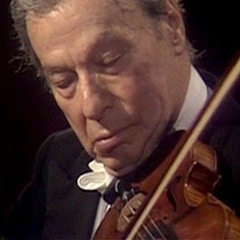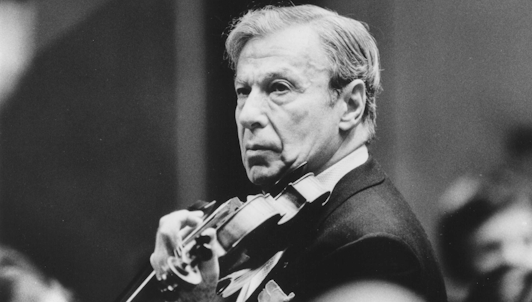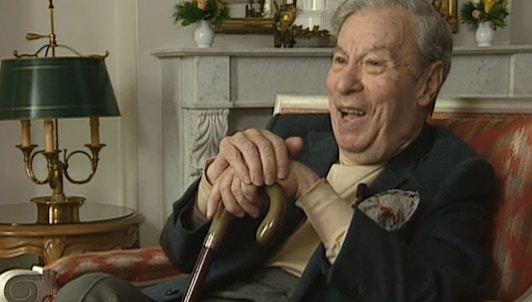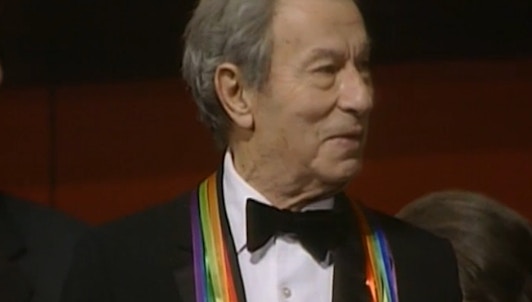Born in Odessa in 1903, Nathan Milstein started studying the violin with Pyotr Stoliarsky, then continued his studies with Leopold Auer in St Petersburg. His curiosity in all the forms of art and his sense of creation and improvisation made him the most cultivated and original violin virtuoso of the 20th century.
The period which followed the Russian Revolution of 1917 was characterized by the friendship and collaboration with the composer Alexander Glazunov, the pianist Vladimir Horowitz and the cellist Gregor Piatigorsky. Milstein became one of the leading exponents of Glazunov’s Violon Concerto, which he played for the first time at 10, but his repertoire continued to increase, including Baroque, Classical and Romantic music.
In 1928, he emigrated to the United States with a fake identity paper, which explains why a wrong date of birth, 1904, appears on several of his biographies. He made his American debut in 1929 with Leopold Stokowski and the Philadelphia Orchestra. After World War II, he lived the most of the time between Paris and London, where he died on December 21st 1992.
A transcriber and composer, Milstein arranged many works for violin and wrote his own cadenzas. In a film shot by Christopher Nupen, Nathan Milstein In Portrait, he told to Pinchas Zukerman, "It's not enough to practice. Obviously you have to practice, but you have to invent ways of doing better", and he kept inventing new ways to play the violin till his last concert, in 1986, at the age of 82.
He was awarded the “Légion d'honneur” by France in 1968, and Kennedy Center Honors by US President Ronald Reagan. In 1975, he also received a Grammy Award for his recording of Bach's Sonatas and partitas for which he is often considered the greatest interpreter.




